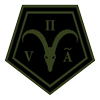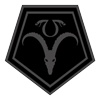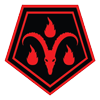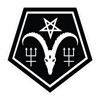The Will To Power
:max_bytes(150000):strip_icc()/Nietzsche_1882-59d83beeaad52b0010eb91cc.jpg)
By Walter H. – The Sect of the Horned God member
The will to power is a prominent concept and central tenet of Fredrick Nietzsche’s philosophy. The will to power describes what Nietzsche may have believed to be the main driving force in humans. “It is best understood as an irrational force, found in all individuals, that can be channeled toward different ends. Nietzsche explored the idea of the will to power throughout his career, categorizing it at various points as a psychological, biological, or metaphysical principle. For this reason, the will to power is also one of Nietzsche’s most misunderstood ideas.” (www.thoughtco.com)
According to Nietzsche there are four aspects to the will to power. They are the ontological, organic, psychological, and societal. The Ontology part of the will to power deals with metaphysics which is a branch of philosophy that looks at the very nature of things, their being, cause, or identity. The organic aspect is the philosophical perspective which views the universe and its parts as an organic whole and as a living organism. The psychological aspect seeks to isolate individual variables of human behavior, and the societal aspect is the social behavior and interpretations of society and social institutions in terms of ethical values.
In all aspects of the will to power, there is a common denominator which is survival or survival of the fittest. Nietzsche took seriously the idea that the will to power might be a fundamental principle operating throughout the cosmos. At times Nietzsche seems to believe that the will to power was more than just a principle that yields insight into the deep psychological motivations of human beings. In his book, Thus Spoke Zarathustra, he writes that “Wherever I found a living thing, I found there the will to power.” Here the will to power is applied to the biological realm. And in a fairly straightforward sense, one might understand a simple event such as a big fish eating a little fish as a form of the will to power; the big fish demonstrates mastery of its environment by assimilating part of the environment into itself.” (www.thoughtco.com) It seems that Nietzsche took seriously the idea that the will to power might be a fundamental principle operating throughout the universe.
While survival is important to the species and is the common denominator in the will to power, it might be considered to be the lowest degree of the will to power. While it’s true that if a being is threatened, it will defend itself in order to survive because death would end its power, when the being is not threatened it will seek to grow and develop in order to attain power. This is the reality of how the universe functions and not only applies to humans and animals, but also to plants and other biological organisms. “The will to power doctrine seems to claim that everything that exists rests fundamentally on an underlying basis of “power-centers”, whose activity and interactions are explained by a principle that they pursue the expansion of their power.” (plato.stanford.edu)
We see examples of will to power in our everyday world. One obvious example would be that of Adolph Hitler whose will to power led him to dominate and control Germany and most of Europe. Other example we may see is the motivated employee who rises in the ranks in his company eventually becoming a CEO. Although, the later example of will to power of the employee rising up in his company might be more aligned with what Nietzsche had in mind as the employee would defend himself against competitors, but more than likely would spend his time growing and expanding his or her skills in their quest for power. We can use the same concept in the left-hand path as our quest is to grow by expanding our knowledge and seeking truths. While true that we will defend ourselves in event of attacks by religious zealots or conservative right handers, our true will to power lies in expanding our knowledge and growing in our quest to better ourselves.





